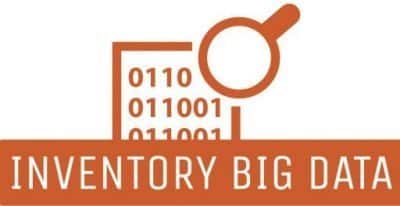Description
As the Human Resource Director, Jessie is responsible for overseeing all aspects of the company’s HR function. She ensures that the company is compliant with all employment laws and regulations, and manages the recruitment, training, and development of employees. Jessie also plays a key role in developing and implementing HR policies and procedures that promote a positive work environment and support the overall business strategy. Additionally, she handles employee relations issues and works to foster a culture of inclusion and diversity within the organization.
Job description:
Location: [Location of the industrial company]
Reports to: CEO or Managing Director
Job Purpose:
The Human Resource Director will be responsible for overseeing all aspects of the company’s human resources functions, including talent acquisition, employee retention, training and development, compensation and benefits, employee relations, and compliance with employment laws and regulations. The Director will be a key member of the company’s executive team, working closely with other leaders to ensure that the company’s human resources strategies are aligned with its overall business objectives.
Key Responsibilities:
- Develop and implement a comprehensive human resources strategy that supports the company’s business objectives and aligns with its culture and values.
- Manage the talent acquisition process, including identifying hiring needs, creating job descriptions, sourcing candidates, and leading the selection and onboarding processes.
- Develop and implement programs to retain and develop the company’s employees, including performance management, training and development, and career advancement opportunities.
- Oversee the administration of compensation and benefits programs, ensuring that they are competitive, fair, and aligned with the company’s overall compensation philosophy.
- Maintain compliance with all employment laws and regulations, including Equal Employment Opportunity (EEO), Occupational Safety and Health Administration (OSHA), and other relevant laws and regulations.
- Foster a positive and inclusive workplace culture, ensuring that employees feel valued, respected, and engaged.
- Manage employee relations issues, including investigations, conflict resolution, and disciplinary actions, ensuring that all issues are handled in a fair and consistent manner.
- Develop and maintain strong relationships with key stakeholders, including senior leaders, employees, and external partners, to ensure that the company’s human resources strategies are aligned with its overall business objectives.
Qualifications:
- Bachelor’s degree in Human Resources, Business Administration, or a related field. A master’s degree is preferred.
- At least 10 years of experience in human resources, with at least 5 years in a leadership role.
- Strong knowledge of employment laws and regulations, including EEO, OSHA, and other relevant laws and regulations.
- Excellent communication, leadership, and interpersonal skills.
- Strong analytical and problem-solving skills, with the ability to develop and implement effective human resources strategies.
- Ability to work collaboratively with other leaders and stakeholders to achieve the company’s business objectives.
- High level of integrity, professionalism, and ethics, with a commitment to promoting a positive workplace culture.
If you’re looking to strengthen your skills for a Human Resource Director role in an industrial company, there are several training options available that don’t require you to seek out a company.
- Online courses: There are several online courses available that focus on different aspects of human resources management, such as employment law, recruitment and selection, performance management, and employee engagement. You can enroll in these courses and learn at your own pace.
- Professional certification: You can consider obtaining professional certifications such as the Society for Human Resource Management (SHRM) certification or the HR Certification Institute (HRCI) certification. These certifications demonstrate your knowledge and expertise in the field of human resources management.
- Attend conferences and workshops: Attend conferences and workshops related to human resources management. These events provide opportunities to learn from experts in the field and network with other HR professionals.
- Volunteer: Volunteer for HR-related projects in your community or with a nonprofit organization. This can help you gain practical experience and enhance your skills.
- Read books and articles: Stay up-to-date on the latest trends and best practices in human resources management by reading books and articles written by experts in the field.
Remember, the key to strengthening your skills is to continuously learn and practice. With the right training and dedication, you can become a skilled Human Resource Director in an industrial company.
Interview question
- What are the most critical skills you look for in candidates during the hiring process?
Answer: As a Human Resource Director, I prioritize identifying candidates with strong problem-solving skills, the ability to work well under pressure, and excellent communication skills.
- How do you ensure that your company complies with labor laws and regulations?
Answer: I make sure that the company’s policies and practices align with federal and state regulations, and I keep up-to-date with any changes that occur. We also conduct regular audits to identify areas where we may need to improve.
- Can you describe your experience in developing employee training and development programs?
Answer: I have extensive experience in designing and implementing training and development programs that address the needs of our employees. These programs are aimed at improving employee productivity, job satisfaction, and retention rates.
- What steps do you take to create an inclusive workplace culture?
Answer: I work with our team to ensure that our policies and practices are inclusive and equitable, and that all employees feel valued and respected. We conduct diversity and inclusion training and create opportunities for employees to engage with one another in meaningful ways.
- What is your approach to managing employee conflict and resolving disputes?
Answer: I prioritize open communication and transparency to resolve employee conflicts. We establish clear policies and procedures for handling disputes, and we work to create a culture of trust and respect.
- Can you describe your experience in managing employee benefits and compensation programs?
Answer: I have experience in developing and implementing competitive employee compensation and benefits packages. I also regularly review our programs to ensure that they align with industry standards and meet the needs of our employees.
- How do you approach employee performance evaluations?
Answer: I believe in a collaborative approach to performance evaluations that includes ongoing feedback and regular check-ins. This allows employees to receive constructive feedback and identify areas for improvement.
- How do you approach workforce planning and talent management?
Answer: I work closely with our leadership team to identify our company’s talent needs and create a plan for recruiting and retaining top talent. We also provide ongoing training and development opportunities to ensure that our employees have the skills they need to succeed.
- How do you stay up-to-date with industry trends and best practices?
Answer: I regularly attend industry conferences and training sessions, and I participate in networking events and professional organizations. I also follow relevant publications and stay up-to-date with the latest industry news.
- Can you describe a time when you successfully managed a difficult HR situation?
Answer: I successfully managed a situation where an employee had made several complaints about a manager’s behavior. I worked with the employee to gather more information and took swift action to address the manager’s behavior. Through open communication and a collaborative approach, we were able to resolve the situation in a way that satisfied all parties involved.


